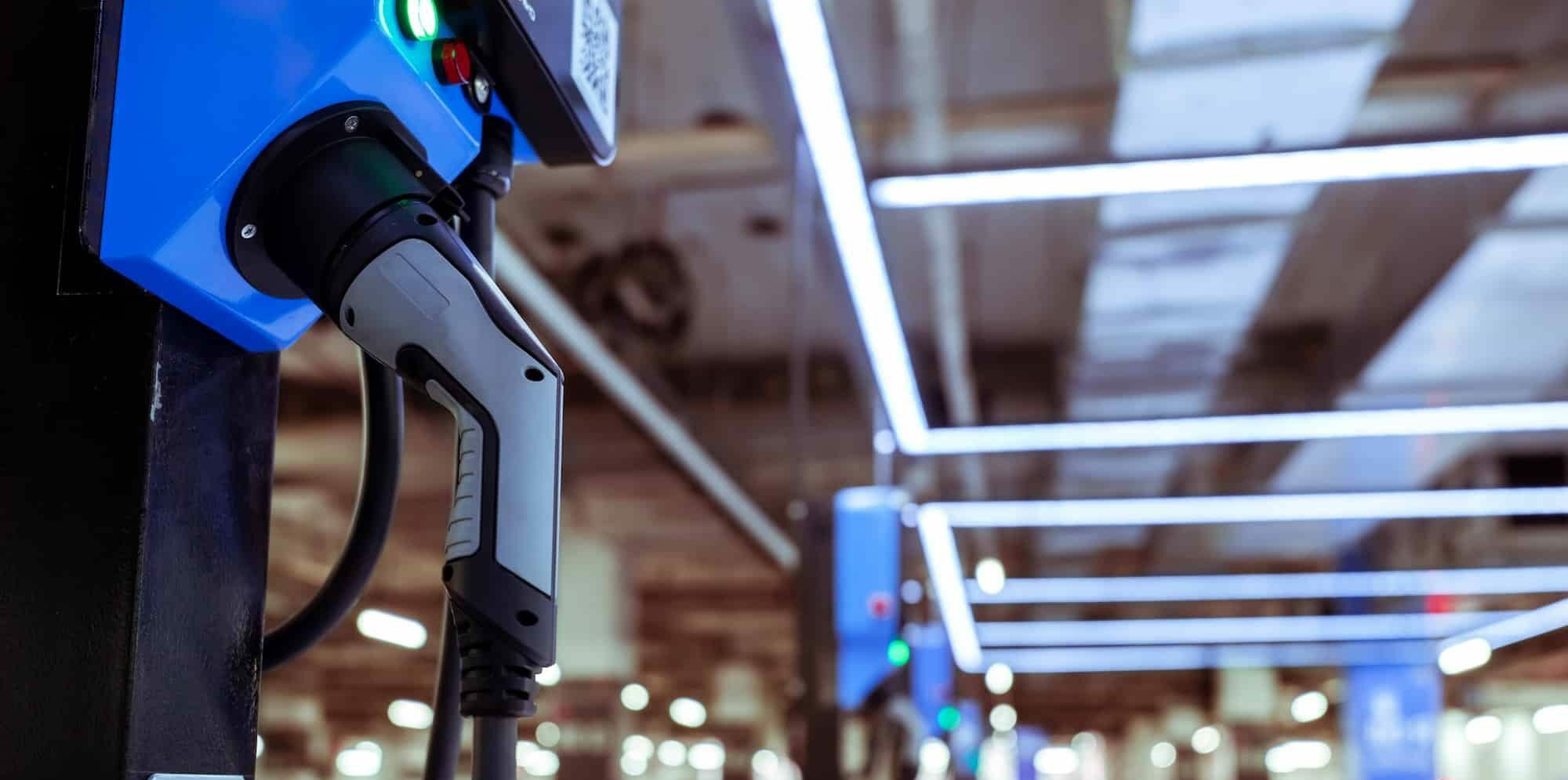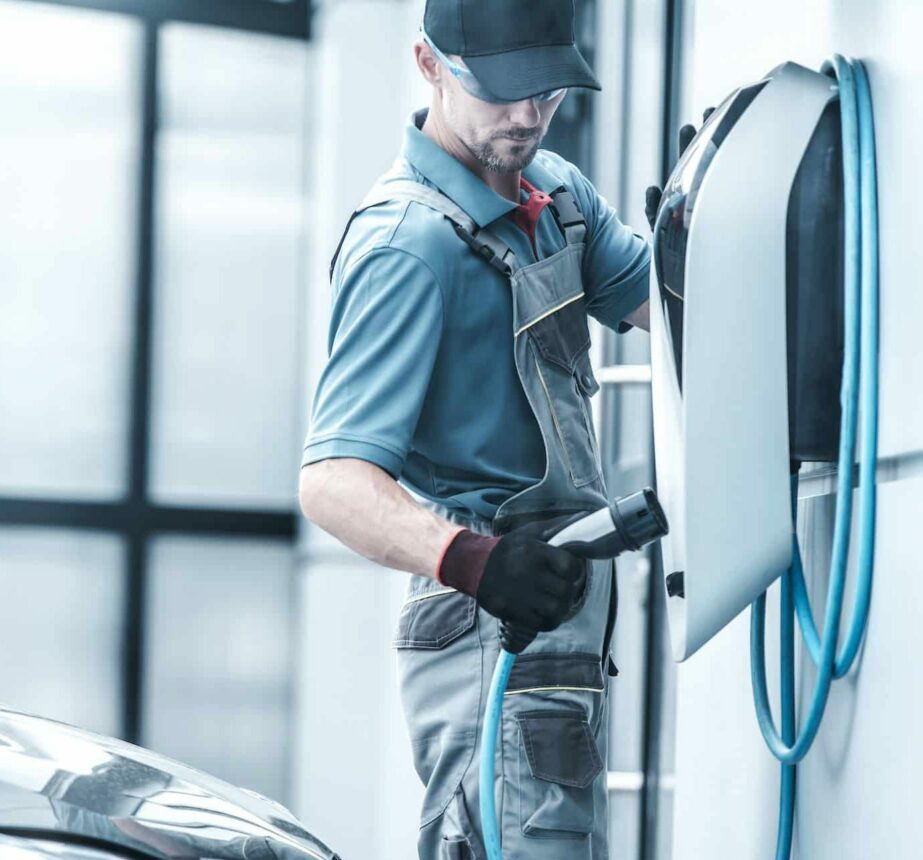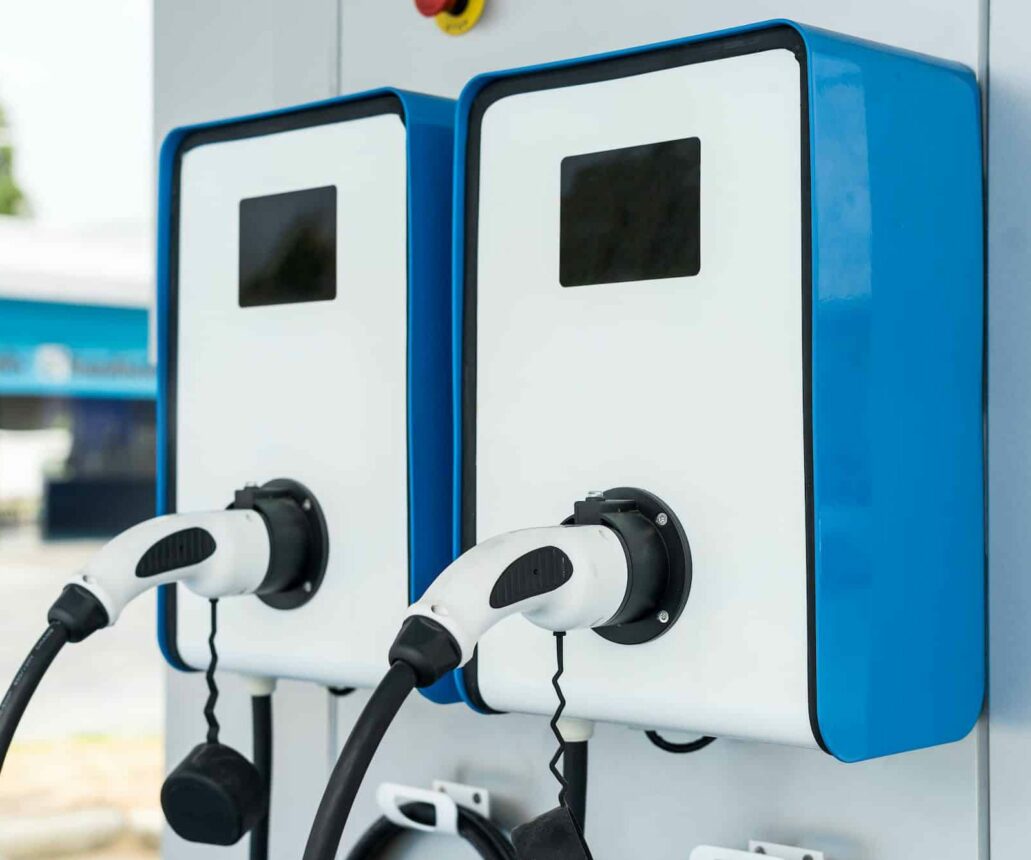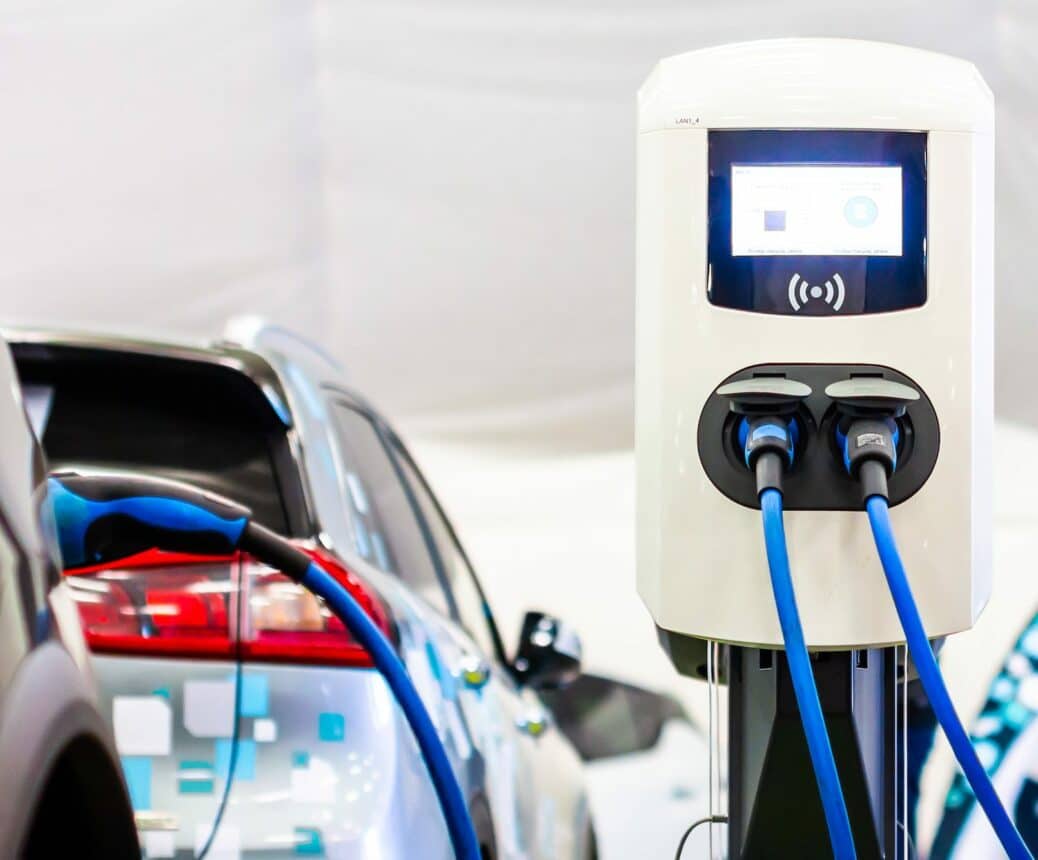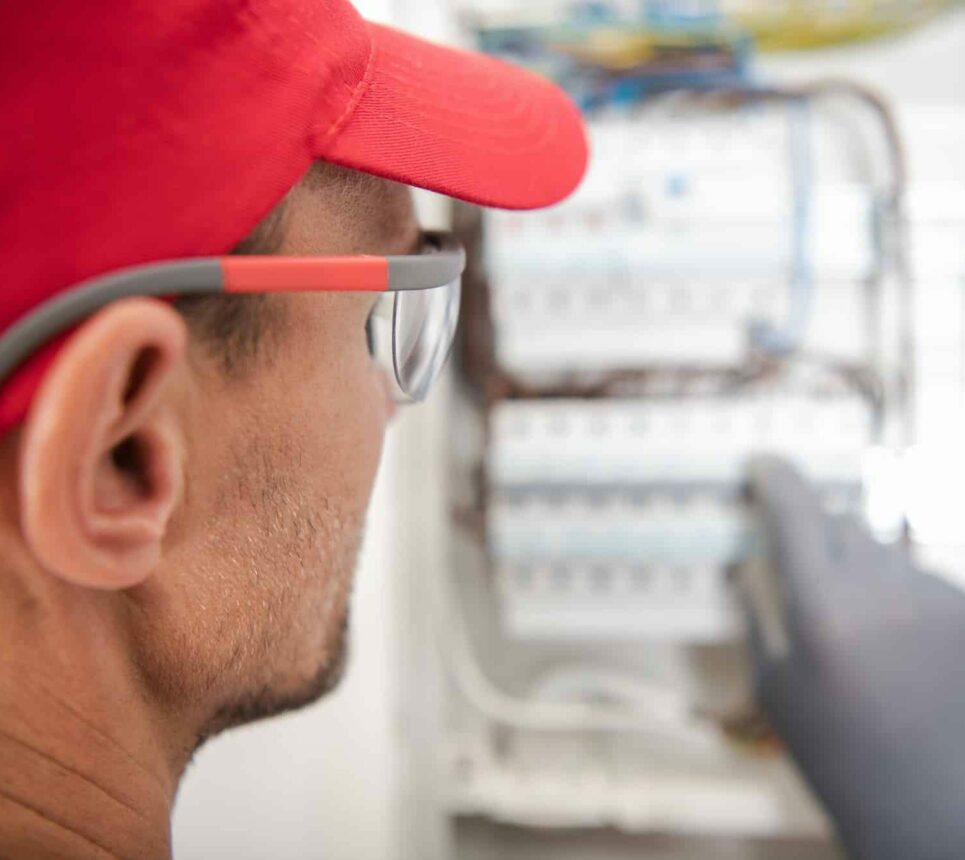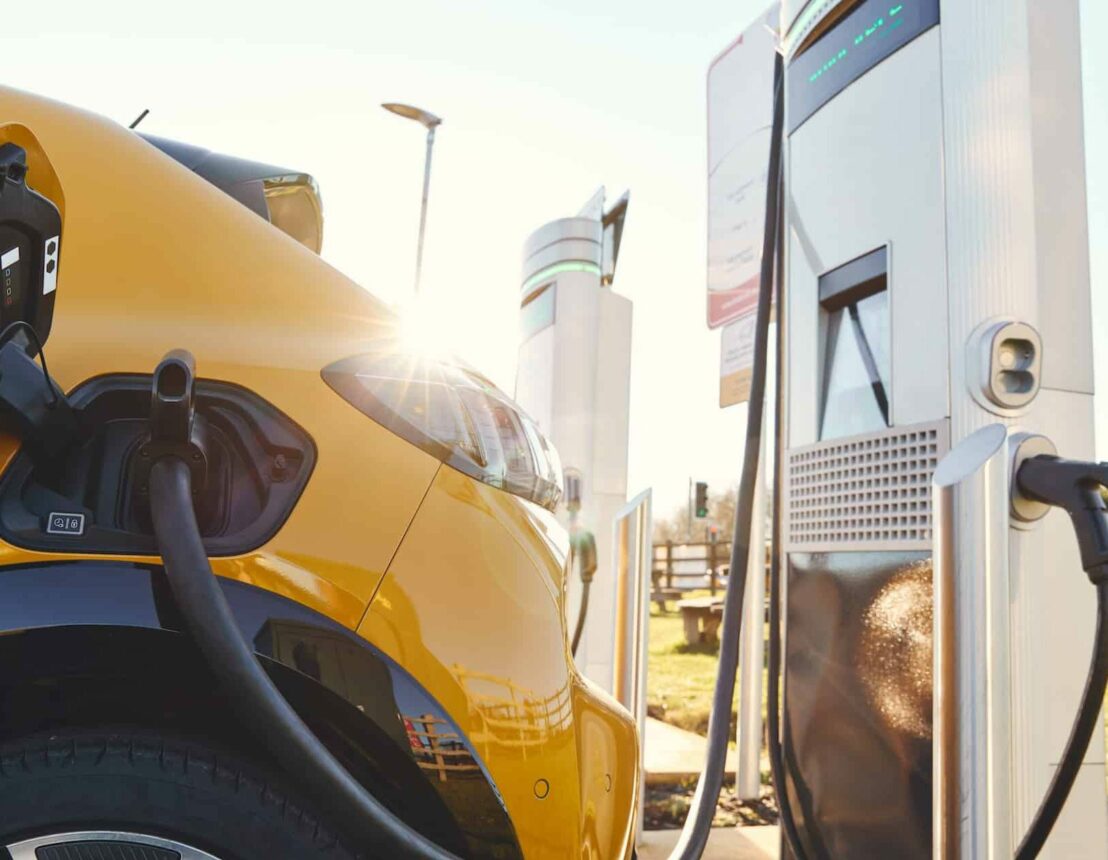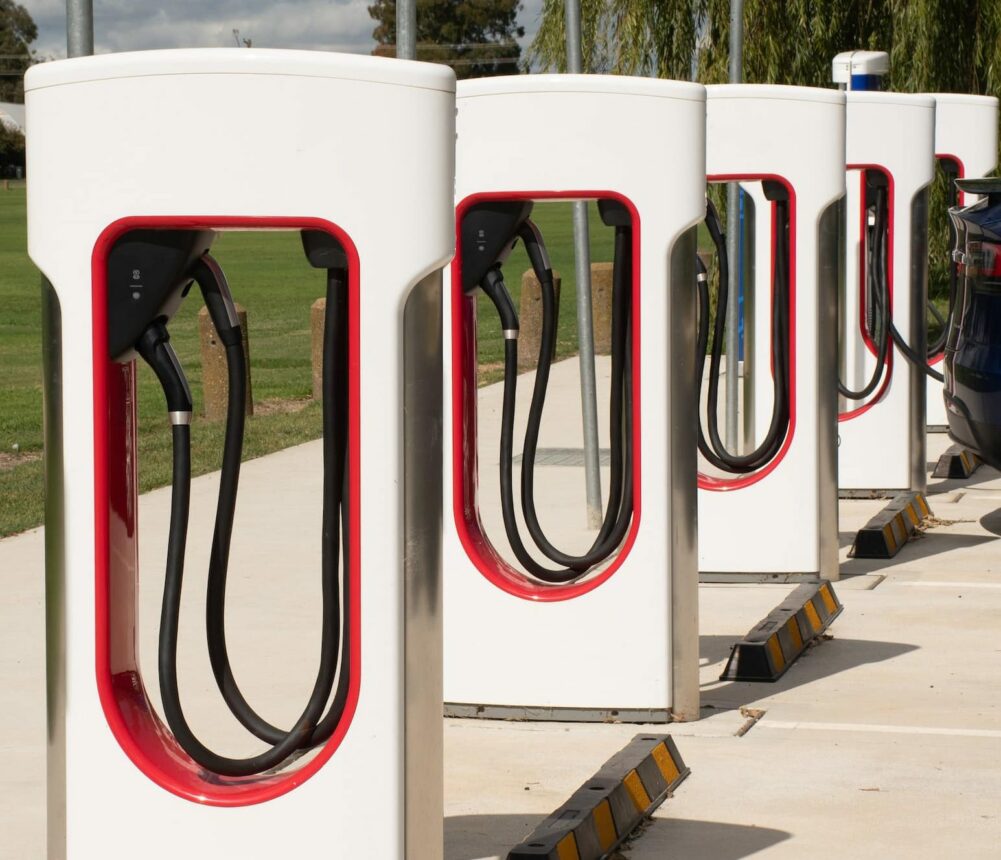Pulling Permits
Most EV chargers require permits to install. Level 1 chargers don’t require a permit since they’re a simple plug-in charger, though you should expect to pay the extra fee for Level 2 and Level 3 systems. These installations typically come with application, permit, and handling fees.
Local agencies charge different amounts, so we recommend verifying costs and requirements before installing any system. Our team can handle the application process, so you won’t have to worry about missing vital documents. Typical fees range from $160 to $300.
- Application: $40 to $60
- Permit: $100 to $200
- Handling fees: $20 to $40
Cabling and Wi-Fi
Certain EV charging systems require specific wires that can increase your costs. If your breaker box isn’t near where you want the chargers, you’ll likely have to purchase a long wire that can handle the required voltage.
Many modern EV chargers also include Wi-Fi receivers that allow users to connect to the app, track charging progress, and view other features. The stations must be within Wi-Fi range, or a new system must be purchased to enjoy this enhancement. Adding a new hub to your network costs more upfront and increases your monthly cable bills.
Plug-in vs. Hardwired
Hardwired EV chargers connect directly to your building’s wiring, making them more challenging to install and impractical to move around. Conversely, the plug-in EV charging station installation process is simple, though it costs a bit more upfront. Plug-in chargers typically cost around $1,000 to $2,200, while hardwired varieties range from $850 to $1800.
While you may save more initially with a hardwired charger, the plug-in variety may cost less in the long run. Plug-ins are easily portable, in case you want to change your property’s layout, and require less complex repairs.
Indoor vs. Outdoor
Indoor (garage) charging stations typically cost less than outdoor chargers due to the decrease in exterior risks. Outdoor chargers often require waterproofing, special cable lengths, extra security, and custom shelters. Opting to place the system indoors can save you around $50 to $100, depending on your property’s requirements.
Location
Aside from your charger’s proximity to your building, your general geographic location also impacts the price. Certain areas of the country have higher living costs than others, resulting in a general increased price of goods.
According to electric vehicle data from the Department of Energy, the average Level 2 charger installation cost (including labor and service upgrades and excluding equipment) is $1,354. Los Angeles has the highest average of $1,828, nearly $500 above the national average, while the lowest city, Atlanta, only averages $775. These figures display how location dramatically affects how much labor costs.
Garage Modifications
Your garage may only be equipped with a 120-volt outlet, sufficient enough for a Level 1 charger, though if you want to purchase a Level 2, you’ll need to upgrade your electrical system to meet the 240-volt demands. Installing the new circuit typically costs around $500 to $1,500.
If you wish to add more interior space for your new charging port, plus the added circuit, you may need to budget around $14,800.
The Benefits of Installing EV Charging Stations
EV charging station installation is critical for all electric car owners. Installing electric vehicle charging stations at commercial facilities offers substantial benefits to property owners. By installing charging stations, business owners can benefit by having a leg up on the surrounding competition, making your business the go-to destination.
Put Your Business On the Map
As the green movement for a more energy-conscious world becomes prominent, new drivers are turning to electric vehicles as their car of choice. With the influx of electric vehicles on the road, the demand for chargers is continuously growing.
Apps, such as Plug Share, allow businesses to place their charging ports on the map, literally. With your business on the map, drivers can plan out their drives and mark your business as a charging destination spot. With time to pass, as their cars charge, drivers are likelier to end up in your business, potentially increasing your sales and revenue.
Tax Incentives
The federal government celebrates the movement toward electric vehicles by providing businesses with tax incentives. Under the Alternative Fuel Vehicle Refueling Property Tax Credit, companies can offset up to 30% of EV equipment purchase and installation costs, with a maximum of up to $30,000. Business owners may also be eligible to receive additional local or state tax incentives.
Monetize Your EV Charging Stations
One of the most significant selling points of installing EV chargers is the ability for property owners to monetize their charging stations. Commercial charging stations can be set up to either offset the installation cost or act as an additional revenue stream for your business. There are four business models companies can implement:
- Loss Leader Model
- Cost Recovery Model
- Profit Making Model
- Fully Funded Model
Figuring out which monetization model aligns with your goals can significantly offset your charging station installation.
